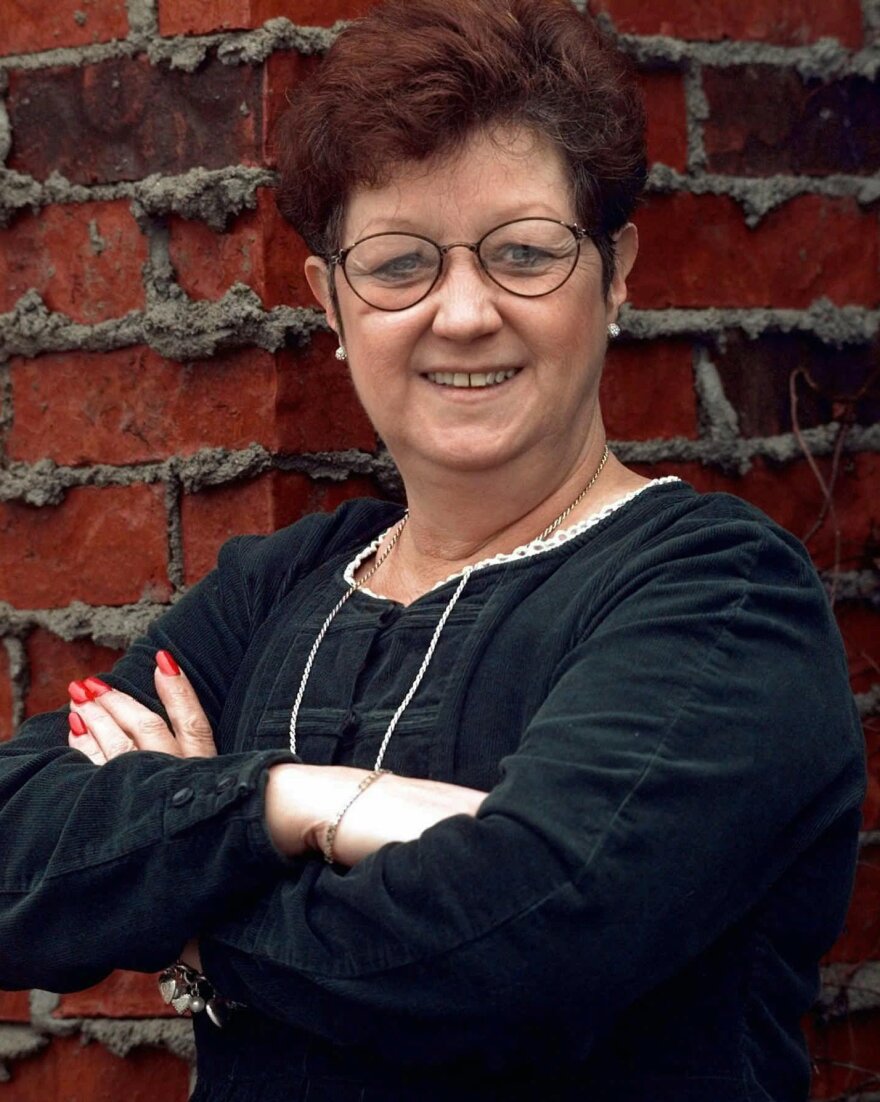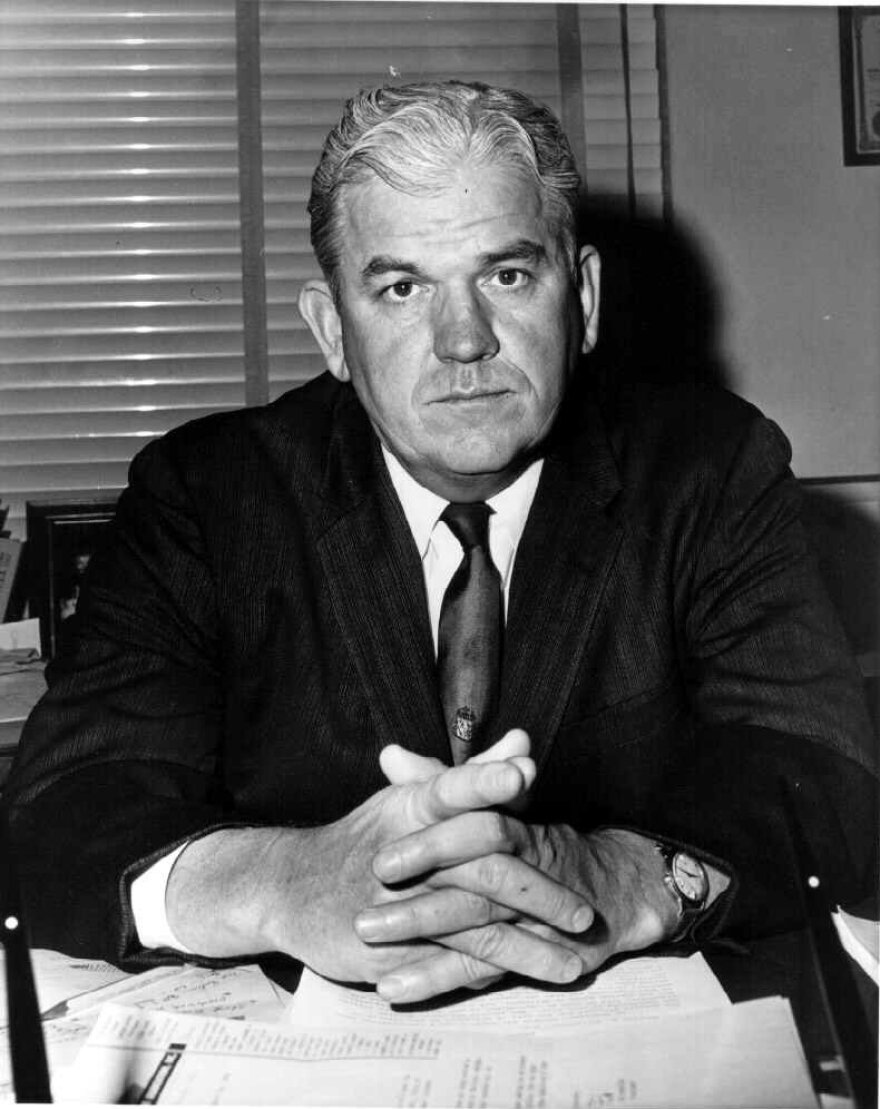Less well-known, perhaps, is that it is inextricably tied to Dallas.
Fifty years ago, it was impossible for a woman in Texas to get a legal abortion, unless the procedure was needed to save her life.
In 1970, two Dallas lawyers challenged the Texas law.
Their client, Norma McCorvey, was given a pseudonym to protect her identity: “Jane Roe.”
The man they sued? Longtime Dallas County District Attorney Henry Wade.
Lower court judges sided with Jane Roe, finding Texas’s abortion ban unconstitutional, says Texas Tech law professor Catherine Christopher.
“The next day, Henry Wade…gave a press conference stating that he intended to continue prosecuting doctors under this criminal statute that the district court panel had just found unconstitutional,” she said.
Because of that threat, Christopher said Roe’s lawyers were able to appeal directly to the Supreme Court, fast-tracking the case and lining up the decision we still talk about today.
Wade’s refusal to follow the court’s ruling in 1970 – to stop enforcing an unconstitutional law – had the same result as a Texas’s latest abortion law, according to Southern Methodist University law professor Joanna Grossman: It functionally blocked abortion access in Dallas.
“We’re basically reliving that exact same moment,” she said.
This summer, the Republican-controlled Texas Legislature passed a law incentivizing lawsuits against anyone who helps a woman get an abortion after the first six weeks of her pregnancy, a point at which most women aren’t even aware they’re pregnant.
That stands in contrast with Supreme Court, which precedent protects a woman’s right to an abortion beyond that limited time period. And it has forced a halt to abortion procedures, sending women out of state to receive abortions.
“For 50 years, in these two different scenes, the women of Texas are at the whim of these male officials who just don’t care if their rights are respected or not,” Grossman says.

Roe v. Wade: The landmark U.S. Supreme Court decision that struck a Texas statute that banned abortion and essentially made the procedure legal in all states. The case originally was filed in Dallas by two young attorneys who sought to challenge the Texas statute. In a 7-2 ruling, justices concluded that the Constitution provided pregnant women a “right to privacy” when choosing whether or not to have an abortion. But the decision left open the possibility that states could regulate some aspects of abortion.
Norma McCorvey: McCorvey, known to the world for many years only by the pseudonym “Jane Roe,” was the plaintiff in the landmark U.S. Supreme Court case that declared unconstitutional state laws banning abortion. McCorvey had a troubled childhood and had married at 16. She was 21 when she became pregnant for the third time. An adoption lawyer referred her to Dallas attorneys Sarah Weddington and Linda Coffee, who wanted to challenge Texas’ anti-abortion statute. She had claimed her pregnancy was the result of a sexual assault, an assertion she later recanted. Her third child was born before Supreme Court justices ruled on Roe v. Wade. McCorvey supported abortion rights for many years, but later opposed abortions. She died in 2017.
Sarah Weddington: Weddington argued Roe v. Wade before the Supreme Court. It was her first appearance before the nation’s highest court. She and Linda Coffee, another young lawyer in Dallas, had filed the original lawsuit challenging Texas’ anti-abortion statute on behalf of Norma McCorvey. McCorvey was identified in court documents by the pseudonym “Jane Roe.” The long-time champion of abortion rights later served in the Texas House of Representatives, in the U.S. Department of Agriculture during former President Jimmy Carter’s administration and as a law professor. Weddington was the daughter of a Methodist minister and a native Texan. She became active in reproductive rights after graduating from law school at the University of Texas at Austin.

Henry Wade: Wade was the legendary – and later highly controversial – Dallas County district attorney who served in that role for more than 35 years. He was named as the defendant in Roe v. Wade because the case was initially filed in Dallas County. As the district attorney, it was his responsibility to enforce Texas’ anti-abortion statute within his jurisdiction. The landmark decision had little if any impact on his political career. In later years, and after his death in 2001, Wade became a more controversial figure as questions arose about the way his prosecutors handled cases involving minority defendants and numerous exonerations.
More on Roe v. Wade:
I knew the real Jane Roe | The World from PRX
The Legacy Of Roe V. Wade | Think
KERA News is made possible through the generosity of our members. If you find this reporting valuable, consider making a tax-deductible gifttoday. Thank you.
Got a tip? Christopher Connelly is KERA's One Crisis Away Reporter, exploring life on the financial edge. Email Christopher at cconnelly@kera.org.You can follow Christopher on Twitter @hithisischris.


